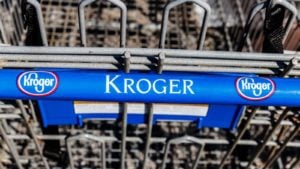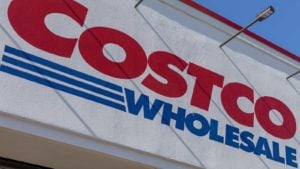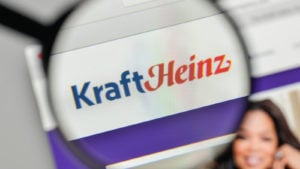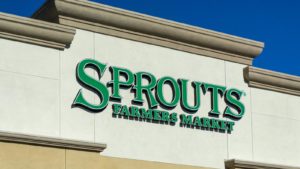[Editor’s note: “9 of the Best Food Stocks to Buy Right Now” was originally published in March 2020. It is regularly updated to reflect the most relevant information.]
Despite some glimmer of hope after a surprisingly positive May jobs report, the situation on Main Street is still dire. According to a recent report from The Atlantic, food banks in California – the greatest economic power within the U.S. – fear being unable to meet swelling demand. That in itself demonstrates the incredible relevance of food stocks to buy.
Hardly a sexy place to park your money, food stocks are somewhat of an afterthought in bull markets. But this narrative changes during bearish cycles. In an email to InvestorPlace, Veljko Fotak, PhD Associate Professor Department of Finance School of Management University at Buffalo wrote the following:
Consumer staples usually outperform the rest of the market during economic downturns. In particular, there is an expectation that certain food stocks will benefit from increased grocery spending, as people dine out less. During the 2008-2009 crisis, we saw US consumer spending on frozen and refrigerated foods spike.
Furthermore, in April, we saw the personal saving rate spike to 33%, a record by a country mile since the government kept track of this data. This reflects a transition away from discretionary spending to the essentials, which obviously bodes well for food stocks to buy.
At the same time, with states reopening businesses such as restaurants, we should expect to see an uptick in dining out, particularly among well-heeled workers. Therefore, investors have many options on how to approach this sector.
Ultimately, though, the bottom line is that people are still stressed over this unprecedented novel coronavirus crisis. At least for the next few months, the food industry should enjoy unusually bullish tailwinds. Because whether you’re eating in or dining out, this sector is indispensable. Here are nine food stocks to buy.
Food Stocks to Buy: Kroger (KR)

Kroger (NYSE:KR) is one of the few names that are still positive for the year and for good reason. As a pivotal necessity in any circumstance, KR stock represents consistent demand. No matter how technologically advanced we become as a society, we still need to eat. The dramatic escalation of the outbreak has made Kroger one of the most important food stocks to buy.
Specifically, with the outbreak comes a “new normal” of acceptable behaviors such as social distancing. To keep in line with these developments, Kroger can now easily and organically advertise its alternative transactions, such as deliveries and online orders and pickups.
Undoubtedly, several people will take the company up on these offerings even after the coronavirus fades. In a way, the pandemic makes Kroger more relevant to the emerging generation, providing another incentive to buy KR stock. And in the meantime, the overall panic should help lift shares.
Finally, traditional grocery stores represent the most cost-effective means of procuring our food, short of waiting in breadlines. In my opinion, you can reasonably expect Kroger to keep marching forward throughout this year.
Costco (COST)

On any given day, Costco (NASDAQ:COST) warehouses are always crowded. Thanks to big open spaces brimming with discounted goods, it’s no wonder why COST stock has offered steady returns. But when the coronavirus-led panic erupted in the U.S., Costco suddenly found itself at the epicenter of a consumer frenzy. Obviously, that makes its shares among the better food stocks to buy.
But even against a longer-term perspective, I believe COST stock is better positioned than most warehouse-style retailers. Estimates vary depending on the source, but the average Costco shopper typically makes about $100,000 a year. Logically, this makes the company more resilient to economic downturns.
Further, state reopening measures should do well for Costco. It’s always been a relevant retailer and I don’t expect that to change because of the pandemic.
Food Stocks: General Mills (GIS)

In the paradigm before the pandemic, General Mills (NYSE:GIS) has become a rather frustrating name. Once among the most popular food stocks to buy, General Mills encountered shifting consumer trends. Largely, this was due to millennials’ penchant for healthier choices. As a result, GIS stock hit a peak in the summer of 2016 and then proceeded to decline.
To be fair, the coronavirus hasn’t definitively changed this trajectory. Still, you’ve got to like its chances now. Unlike fresh fruits and vegetables, General Mills specializes in shelf-stable foods like cereal. Obviously, in a prolonged emergency, shelf life, not necessarily healthy eating, is the top priority.
And don’t let your guard completely down because of states reopening. According to data from the Centers for Disease Control and Prevention, daily coronavirus infection cases have “bottomed” at a high threshold, which suggests a possible second wave could strike. Thus, GIS stock wins in this new paradigm, one that could stay with us for a while.
Kellogg (K)

Another popular and iconic cereal company, Kellogg (NYSE:K), has been a mainstay in the American household for decades. However, growing evidence indicated that younger generations might eschew traditional processed breakfasts and other food products for fresh, healthier choices. This trend sparked changes in food logistics, which didn’t necessarily bode well for K stock.
However, the spread of Covid-19, which has devastated many industries, may offer a lifeline for K stock. Although shares have been exceptionally wild in the past few weeks, Kellogg offers the same fundamental narrative as other food stocks: long shelf life and convenience.
As well, Kellogg has exposure to the burgeoning plant-based meat market through its MorningStar Farms subsidiary. The advantage here is that Kellogg has the capacity to scale up this business if long-term demand justifies it.
With young people unlikely to pick up farming as a new skill, K shares should enjoy a steady return to demand as we work through this crisis together.
Food Stocks: Kraft Heinz (KHC)

Typically, investors can rely upon food stocks, even during times of economic hardship. Fundamentally, everyone has to eat, facilitating a perpetual demand channel. However, the coronavirus completely upended this narrative.
With so many people – particularly food industry workers – coming down with Covid-19, multiple meat products manufacturers were forced to shut down production to various degrees. Additionally, the economic fallout from the national lockdowns temporarily eliminated demand from restaurants and other institutions.
In this scenario, I believe diversified food companies such as Kraft Heinz (NASDAQ:KHC) may offer relative stability. Obviously, KHC stock benefits from the perpetual demand I mentioned above. Also, the underlying company’s portfolio isn’t exclusively levered to the protein crisis.
While not foolproof by any means, I like that Kraft Heinz has compelling brands across condiments, beverages, snacks and coffee. Given the uncertainty, the “shotgun” platform of KHC stock makes its contextually attractive.
Shake Shack (SHAK)

While returning home from a grocery run, I passed by an In-N-Out Burger location. I was startled that a massive line had formed in the drive-thru area. If I didn’t know any better, I would assume that everything was normal.
Of course, it’s not but it got me thinking. If In-N-Out was a publicly traded company, it would be an easy candidate for food stocks to buy. With so much demand despite a terrible crisis, shares would likely soar. But investors don’t need to fret as Shake Shack (NYSE:SHAK) and specifically SHAK stock could provide some upside opportunities.
What clued me into Shake Shack is the company’s demographics. The brand appeals strongly to the youth market, along with those earning six-figure incomes. Thus, SHAK stock can grow with its core consumer base while experiencing some mitigation during this health and economic crisis.
Food Stocks: Hain Celestial Group (HAIN)

Given the meat shortages and the dramatic rise in grocery prices, many consumers have started eyeballing meat alternatives. Suddenly, this niche segment has become a very hot topic. Nevertheless, there are several people who are concerned about consuming food products with too many chemicals. For these folks, they may appreciate what Hain Celestial Group (NASDAQ:HAIN) has to offer.
Indeed, this pandemic and subsequent supply chain disruption is a free marketing opportunity for Hain’s Yves Veggie Cuisine brand. Replicating the taste and texture of meat products, Yves manages this without resorting to artificial colors or flavors. That could help put many first-time customers at ease, thereby potentially boosting HAIN stock.
Additionally, Hain offers many other protein products with an emphasis on healthy ingredients. Because most of the stimulus checks are being spent on food and groceries – no surprise there – HAIN stock should have more upside remaining.
Sprouts Farmers Market (SFM)

From a contrarian perspective, right now may be a good time to consider fast-food eateries as viable food stocks to buy. Given the pent-up demand from millions of people who have forgotten how long they’ve been in quarantine, these entities could enjoy a sales spike.
But it’s equally important to consider possible consumer behavioral shifts over the long run. Undoubtedly, many of us have succumbed to “emotional eating” during the lockdowns. Combined with people flocking to high-shelf life food products – which admittedly carry significant amounts of sodium and various chemicals – this pandemic may worryingly expand our waistlines. Therefore, Sprouts Farmers Market (NASDAQ:SFM) may offer some relevance here.
As you know, Sprouts specializes in natural, organic and gluten-free foods. Therefore, consumers could continue to shop there in higher-than-normal volume as a form of quarantine detoxing. If so, that would obviously benefit SFM stock.
Of course, the one problem is that we’re in an economic crisis, which would see consumers saving every penny. At the same time, a reduction in discretionary spending may translate to shoppers paying an extra premium for quality foods. In that scenario, SFM stock would be a name to watch closely.
Food Stocks: Sysco (SYY)

At the onset of the pandemic, food distributor Sysco (NYSE:SYY) faced extraordinary risks. In any other circumstance, Sysco’s business – which essentially involves feeding the food industry’s massive supply chain – would likely overcome any challenges. However, with the quarantines came the temporary closures of restaurants, school districts and entertainment venues. Not surprisingly, SYY stock cratered in the first half of March.
However, shares have been making a steady comeback since the lows of this year. With most states enacting reopening protocols, we’ve seen several restaurants welcome back customers. Further, some entertainment venues will open soon, giving SYY stock a much-needed shot of optimism.
Still, this isn’t the most confident idea among food stocks to buy. For one, the reopening measures will necessarily involve social distancing, which cuts into maximum revenue potential. Furthermore, the nationwide protests calling for social equality creates uncertainty. But if you believe in the broader recovery narrative, Sysco is a company to watch closely.
A former senior business analyst for Sony Electronics, Josh Enomoto has helped broker major contracts with Fortune Global 500 companies. Over the past several years, he has delivered unique, critical insights for the investment markets, as well as various other industries including legal, construction management, and healthcare. As of this writing, he did not hold a position in any of the aforementioned securities.
